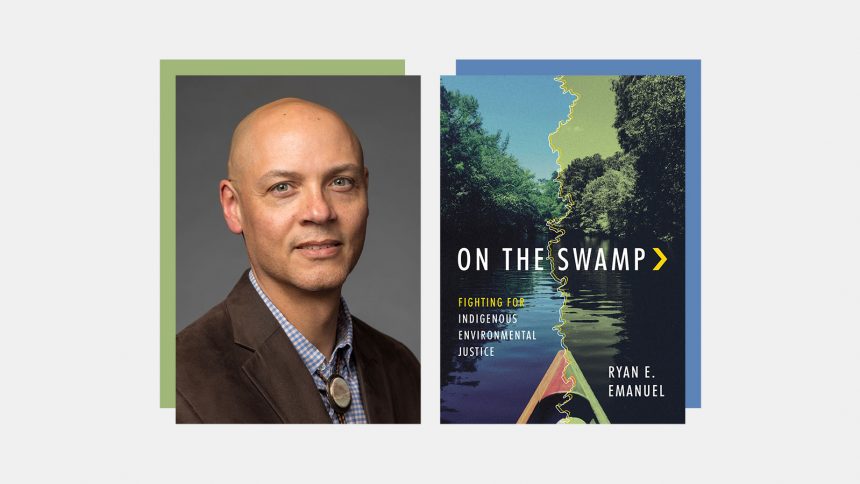This story was created in collaboration with Covering Climate Now. As the Earth faces the harsh realities of climate change, Ryan Emanuel, a Lumbee citizen and scientist at Duke University, offers a fresh perspective in his debut book “On the Swamp: Fighting for Indigenous Environmental Justice.” Emanuel argues that climate change is not the root problem, but rather a symptom of settler colonialism and its extractive mindset, which has long threatened the landscapes, including his ancestral homeland in eastern North Carolina.
Emanuel emphasizes the importance of consulting with Indigenous peoples who have a deep connection to the land and possess the wisdom to prevent long-term environmental disasters caused by short-sighted material gain. He recalls his childhood visits to the swamps of Robeson County, North Carolina, where he now conducts research, showcasing his passion and admiration for these natural spaces.
However, Emanuel also highlights the challenges he faces, such as encountering hostility from a white farmer during a research expedition after Hurricane Florence. This incident sheds light on the disparities in environmental impact between large industrial operations, mainly owned by white individuals, and smaller, sustainable family farms like those of Emanuel’s relatives in Robeson County.
“On the Swamp” delves into the rich history and landscape of eastern North Carolina, drawing parallels between the legacy of colonization and ongoing struggles against environmental injustice. Emanuel explores how the swamps once provided protection for Indigenous communities, and how climate change now threatens these vital ecosystems.
The book serves as a cautionary tale and a tribute to the resilience of Indigenous peoples like the Lumbee Nation, who continue to fight for environmental justice. Through his thoughtful writing, Emanuel invites readers to reflect on their connection to the land and the urgent need to confront the complex issues of pollution, climate change, and sustainability.
Grist had the opportunity to interview Emanuel about “On the Swamp,” where he shared insights on his motivations for writing the book and his personal connection to the land. The conversation expanded to discuss the significance of the canceled Atlantic Coast pipeline project, which disproportionately impacted Native American communities, including the Lumbee people.
Despite the challenges faced by Indigenous communities, Emanuel remains optimistic about the power of collective resistance and grassroots activism in holding corporations and policymakers accountable. The cancellation of the Atlantic Coast pipeline serves as a testament to the strength of community-led movements and the importance of challenging harmful practices in the face of climate change.






